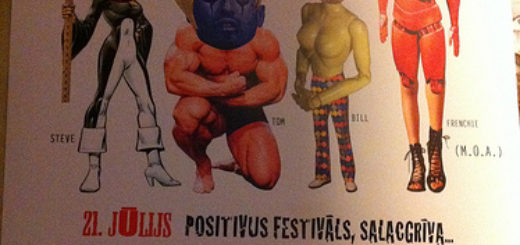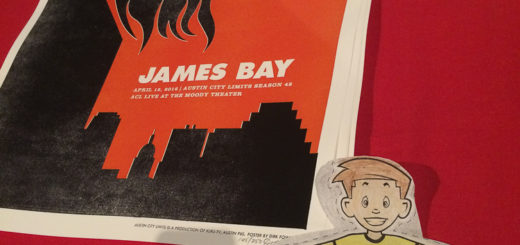Dreams Stay With You
Ed note: This post was written in December 2021. It was held until September for reasons that will become clear below.
On social media I subscribe to virtually every group that panders to Generation X. It’s a vice of mine, I suppose; we (that is to say, Gen X) exist between two or three generations that are excessively discussed—Boomers, or at most of us know them, our parents, and late Millennials and Gen Z, or, as most of us know them, the carhops at Sonic that we think are cute but won’t talk to because good God they’re vapid. (When I say ‘vapid”, that may or may not really mean “they don’t get my jokes.” It is what it is.) Meanwhile, our hapless lot in the middle, for whom MTV and Star Wars action figures were…more than I can really explain to you, are largely ignored by the armchair sociologists of the blogosphere and the (if you will) articlesphere.
As I write this, it’s December 17, 2021; yesterday, therefore, was (wait for it) December 16, 2021, and one of those Gen-X groups made a post that stopped me in my tracks.
On December 16, 2001—in other words, it’s been twenty years—Stuart Adamson, the lead singer of Big Country, died by suicide.
Now I’m not saying that Big Country loomed particularly large in my memory; if anything, they occupy a sort of patchwork quilt in my mind that’s composed of one-and-done pop musicians from the 80s. They share the same happy space as Dexy’s Midnight Runners, or Peter Schilling, or Murray Head. (Men At Work are exempt; they remain my favorite band, whose entire album output—all three of them—I have on vinyl. But I digress.)
Or rather, Big Country occupied that space, until 20 years ago—scant months before Adamson’s suicide.
You see, I have a story about Stuart Adamson.
I swear that what I’m about to tell you is true:
In August of 2001, we had just adopted our kids. Ours was, as I think I’ve touched on before, a transracial adoption; the missus and I are Caucasian, and Rob, Dricka, and Rudy are black. Or, as Dricka was fond of saying, “we brown—y’all peach.” Hey, it is more accurate.
In September or October of that year, I took the boys to the barber shop for the first time. It was a barber college in Madison, Tennessee—a working-class neighborhood of Nashville, essentially to Nashville what Queens is to New York—and it was a predominately black barber college.
To my embarrassment, I must confess a Dumb White Guy Moment as we entered the shop: I thought that a white man walking into a black barber shop with his two black kids would be like that scene in every Western where the bad guy walks into the saloon and it falls deadly silent. There would be, I thought, a palpable collective reaction of “what’s he doing here?”, and that I would have to…I don’t know, prove myself to be One Of The White Guys That’s Okay.
I walked in to…no reaction at all. As soon as I entered, I also realized that I would not be the only honky ofay devil—the small, wiry man who apparently ran the college (as evinced by his moving from chair to chair, giving advice) was also white, and so, it happened, was the guy at the counter.
To the guy at the counter, I said, “hey, there…uh, haircut for me and my boys”.
And he answered me.
His exact response was, “awe aye, dae yir boys want boax fades, then?”
If you aren’t in the habit of hearing words in your head as you read them, or if you’ve never read anything by Robert Burns or Irvine Welsh, what I’m conveying here is that I was hearing, in this predominately black barber college, a Scottish accent. Yyyyyeah…Scottish accent. Last thing I expected. The boys did indeed want Boax Fades—or box fades, as they are know in ‘Murican—and each of them were able to go right to a waiting chair. This being a barber college, the Scotsman was, it turned out, not just the clerk, but a student, and so he cut my hair. Intrigued, I struck up a conversation.
“So, you’re not a native Nashvillian?”
“Naw, Ah’m fae Edinburgh.”
“How’d you get here?”
I’d like to remind you, I swear this is a true story.
“Dae ye mind ae a band caud Big Country?”
“Really? As in, in a big country, dreams stay with you, like a lover’s voice–“
(Singing now) “Cross a mountainsiiiiiide…aye, ah wir the lead singer.”
This revelation threw me a massive curve-ball. A genuine, authentic former celebrity, someone whose voice had reached the pop charts twice, someone who could still be heard when radio stations did All Eighties Weekends, as was still the fashion at the time, had drifted…into the real world! He continued to exist after fame! F. Scott Fitzgerald can suck it—there are third acts in American (or at least ex-pat Scot) lives! And here was Stuart Adamson, living just such a life—just not in a way I’d ever imagined it being lived. He had, it seemed, packed it in on the musical career, and now wanted to learn a reliable trade—if memory serves, I think he told me he was learning to do hair for touring musicians. I’m not sure. Much of my memory of that particular haircut is now obscured by (1) time (2) the low-key fanboy meltdown I was experiencing.
A few months later, of course, we needed our hair cut again, and we went back to the barber college in January of 2002. Stuart, who I had hoped I’d meet and get a haircut from again, was not in—nor would be again, as evinced by the flyers that were still up around the college: “Celebration of Life For Stuart Adamson.” Stuart, it seemed, had gone to Hawaii, locked himself into a hotel room in Honolulu, and hanged himself.
I asked questions, especially of the wiry fellow who ran the college, and I got answers: Stuart’s wife was divorcing him, and he was struggling with a massive drinking problem. When he died, he had been missing for weeks.
I was gutted. I would have been gutted anyway—someone I had met, who had cut my hair, whom I’d talked to—was dead of his own choosing. But for me, there were factors magnifying the impact. For one, the year before, another person I knew with a drinking problem had killed himself; his name was Tom Sparks, my dad. Now, it seemed, this familiar specter was appearing again. More than that, though, my emotions got the better of my logic, and when I heard he’d killed himself, my mind dredged up an awful “epiphany”—obviously, it’s MY FAULT that Adamson killed himself! Of course! Don’t you see how the pieces fit? He’d made peace with the fact that he hadn’t remained in the pop-star firmament, and was enjoying anonymity as a barber, and then I showed up and was in awe of what a big deal he’s used to be! I, and I alone, started this poor man on a trek of ruminating and regret that led him to conclude that, as a former Big Deal, he no longer rated!
Eventually—especially as I related my theories to my wife—I calmed down, and realized that the decision he reached had come from a far more complex place than that, just as it had with my father. Citizen Kane is a great movie, but it’s not an ideal model for amateur psychology—there may be a few people out there whose entire life (and death) are about their own personal Rosebud, but they’re the exception, not the rule. The Stuart Adamson I met was not just an 80s one-hit wonder, he was a complex human being, as real as the rest of us, as broken as the rest of us; that his choice seemed to dovetail chronologically with my meeting him was only happenstance.
But it still haunts me.
Of course, really, every detail of this story haunts me, when I think about it. That barber college went out of business years ago; the building is still there, though, as opposed to the Shoney’s restaurant across the street that our family went to post-haircut—it was closed, torn down, and replaced with absolutely nothing. The oldest of my two sons, who had just turned 10, is now 30, and the first of his sibs to graduate from college. My youngest, who was seven at the time and preferred riding on my shoulders to walking anywhere we went, is now 27, drives a forklift, and recently fathered his fifth child, one of my eleven grandkids. I still listen to Big Country, along with all the music I’ve ever loved, on a device the size of a candy bar—a device that did not exist in 2001.
A very Big Country is The Land of Ago, and it’s bigger all the time.
September is suicide awareness month:
If you are struggling, please call the National Suicide Prevention Lifeline. The Lifeline provides 24/7, free and confidential support for people in distress, prevention and crisis resources for you or your loved ones in the United States. 1-800-273-8255.























A wonderfully sensitive essay on human emotional complexity and suicide. It hints at how those of us who look at suicide from the outside often look for simple singular causes for this action when the truth is typically far more complicated. Well done!
A further example that we often don’t know another person’s struggles.
Well written.